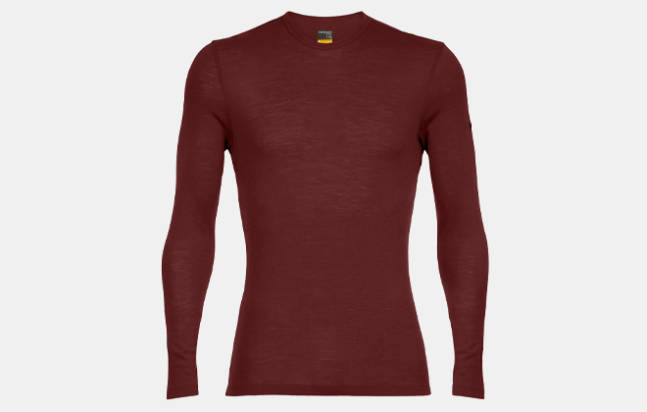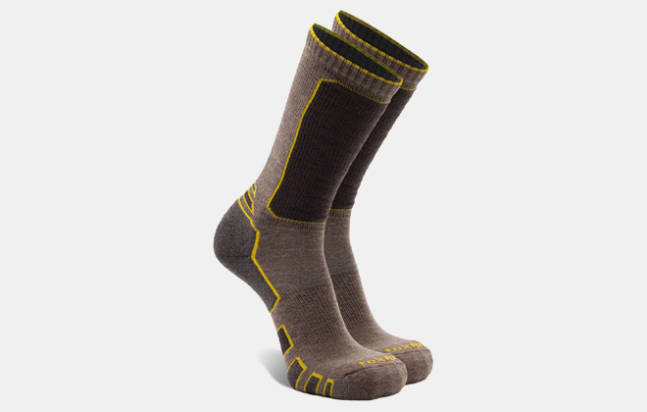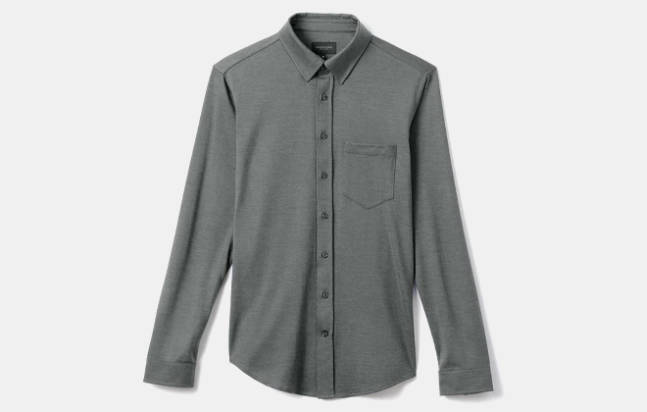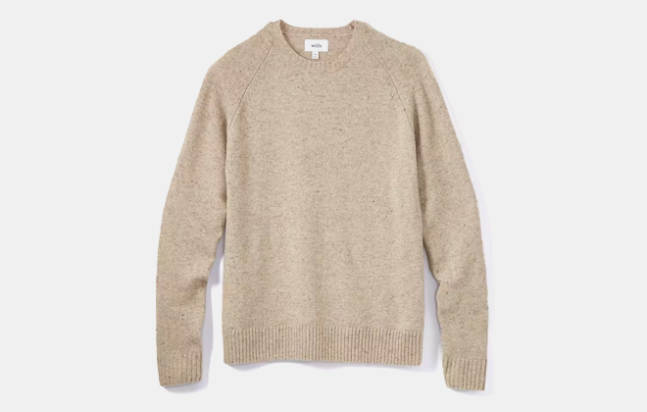There’s nothing quite like merino wool. It’s the type of material that’s equally as good for staying temperature regulated during a day on the slopes as it is for wearing the entirety of a weekend trip to just about anywhere. It’s long-lasting, thermoregulating, naturally odor resistant, and, importantly, soft. Put simply, if you don’t have at least a few articles of merino wool in your closet then you’re missing out on performance clothing that will last you a lifetime of looking, and feeling, great.
The Benefits of Merino Wool
Merino wool comes from Merino sheep, which were bred in Spain between the 13th and 15th centuries. Today, Australia and New Zealand farm most of the merino out there, but the sheep are also raised in parts of North and South America, as well as Europe.
The small (usually between 17.5 and 24 microns) fibers are tightly coiled. That means a breathable material with stretch where you need it and fewer wrinkles, too. It also outperforms synthetic materials for an active lifestyle: merino wool can absorb up to a third of its weight in moisture.
A garment doesn’t have to be 100 percent merino wool to get the benefits. In fact, merino-heavy blends can actually be desirable for certain outcomes.
“We love to blend merino with plant fibers, as it allows us to get closer to our 100-percent merino or plant-based fiber goal,” says Kieran Anderson, head of marketing, North America, for the merino clothing company Icebreaker. “Blending merino with other fibers also allows us to innovate and enhance our performance properties through the development of beautiful, versatile, and high-performing fabrics.”
Tencel (lyocell) makes for a more lightweight and breathable fabric that’s soft against the skin, for example, while linen complements merino wool’s natural absorption quality. Cotton adds durability and the synthetic Elastane fiber allows for some stretch.
But at the end of the day no matter what goes into the fabric blend, quality merino is at the heart of what makes each garment great.
Merino Wool Clothing Brands Men Should Know
Icebreaker
This pioneer in the merino performance apparel industry started in New Zealand in 1995, and focuses on high-quality, responsibly sourced merino wool. It’s also incredibly sustainability minded, with long-term partnerships with merino growers starting in 1997. The grower relationships help guarantee Icebreaker’s “five freedoms of the flock” on certain wellbeing qualities for the sheep. In 2007, Icebreaker started to source wool through the ethical treatment ZQ program, and introduced a tracking code in 2010 (cheekily called a baaacode) so customers could trace the fibers in their clothes to the exact farm. As of 2022, the company has an annual transparency report and 95 percent of its fabric consumption is natural or plant-based fiber.
Icebreaker merino picks:
- Men’s Merino Hike+ Medium Crew Socks: $25
- Men’s Merino 175 Everyday Long Sleeve Crewe Thermal Top: $85
Fox River
There’s something special about a company that focuses on one thing and one thing only. It’s the type of specialization that leads to timeless quality. For Fox River, that thing is performance socks, and it has been since 1900. Manufactured in Iowa, Fox River uses a merino wool blend (52 percent Merino wool, 39 percent nylon, 22 percent Thermolite, seven percent polyester, and two percent spandex) for socks that are warm and durable whether you just want to wear them around the house or you take them on a thru-hike.
Fox River merino picks:
Unbound
Travel is simply better when wearing merino clothing. It checks all the important boxes: odor resistant, durable, hard-to-wrinkle, and comfortable. While there are a good number of merino wool shirts, underlayers, sweaters, and socks out there, there aren’t a whole lot of pants. Unbound fills the gap with its pants made using 95 percent Italian merino wool and five percent Elastane for some stretch. It also provides in another category that’s hard to come by: button up shirts that perform as well as they feel.
- Merino Travel Pants: $229
- Merino Button Up: $158
Wills
Wills works with cashmere, merino wool, linen, and supima cotton suppliers from places like Chile and Mongolia, and the clothes the company produces with those fibers are quality without the hard-hitting price tag. The cruelty free merino comes from South America, and each of the pieces are lightweight while still providing warmth. More than just reliable base layers, Wills makes clothing that’s just as aesthetic as it is utilitarian.
Wills merino picks:








